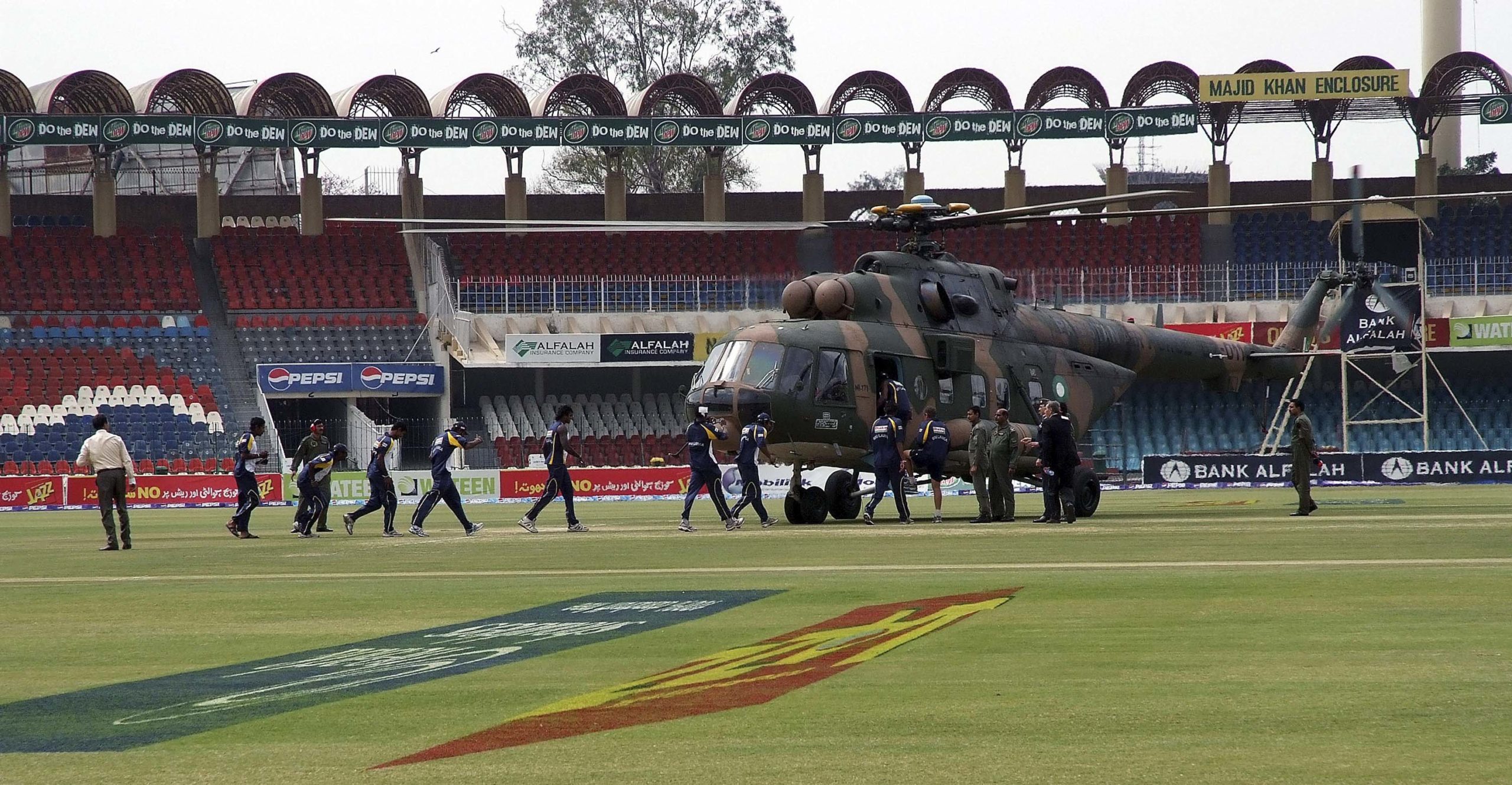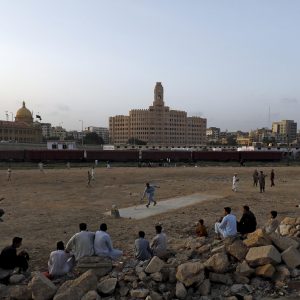How Pakistan can get cricketing nations to tour
New Zealand and England’s refusal to play in Pakistan – citing security concerns – undid years of work to return the country to cricketing normality. But Ramiz Raja has a straightforward fix.
Author:
23 October 2021

Former Australian cricketer Shane Warne once said: “To me, cricket is a simple game. Keep it simple and just go out and play.” Warne was right. Cricket is about hitting the field and playing the game; nothing more, nothing less.
But what if the field you’re supposed to play on is termed “unsafe”? Once labelled, how do you prove otherwise? How much time needs to pass without incident to be regarded as “safe” once again?
These are a few of the questions with which the Pakistan Cricket Board (PCB) is struggling. While games are taking place in almost every corner of other cricket-playing nations, Pakistan – one of the 12 full members of the International Cricket Council (ICC) – remains unable to convince some of its counterparts to play in the country, 12 years after losing its “safe” label.
In March 2009, the Sri Lankan cricket team was touring Pakistan. They were on their way to the Gaddafi Stadium in Lahore when masked gunmen opened fire on their bus. Six police officers and a driver accompanying the team were killed, while seven Sri Lankan cricketers were injured. Pakistan had already been questioned about its security and this attack was the death knell. For the next six years, no other country played cricket in Pakistan.
Related article:
In 2015, Zimbabwe finally played a limited-overs series in Pakistan, but not without drama. Zimbabwe’s cricket board first released a statement saying they would not tour Pakistan, before finally withdrawing it. The series concluded safely and it was expected to open the gates for others. But Pakistan didn’t host an international cricket match for another two years.
In 2017, the ICC sent a World XI team made up of players from several nations to restore cricket in Pakistan. But only after Pakistan’s government agreed to provide “presidential-level security” for the touring contingent.
The tour was a success and it raised the hopes of cricket fans in Pakistan, who thought they would now be able to watch their cricketing stars battling it out against international teams without having to travel overseas or watch on television. Their hopes were raised further when Sri Lanka arrived to play a one-off Twenty20 international that same year, particularly because it was Sri Lanka who had faced the terror attack in 2009.
Getting back on track
Efforts to get cricket back on track in Pakistan seemed to be going well. The West Indies, Sri Lanka, Bangladesh and Zimbabwe toured between 2018 and 2020, and international stars entered the country for the Pakistan Super League, the PCB’s franchise-based T20 tournament, without trouble. The success of the league convinced South Africa to tour Pakistan earlier this year.
“South Africa confirming a tour to Pakistan and playing matches at the three major centres is fabulous news for Pakistan cricket and its fans,” said PCB director Zakir Khan at the time. “South Africa is one of the most popular sides in Pakistan, even though they last played here in 2007. But the fans have been following their performances closely and now look forward to welcoming them.”
The tour went off without a hitch and Pakistan celebrated with a cake and dancing.
But then the efforts of the past 12 years were undone in a flash. All Pakistan’s hard work to resolve its opponent’s security concerns, the years of assurances and convincing, came to nought with a single threat.
The New Zealand cricket team travelled to Pakistan for the first time in 18 years, having been promised the highest level of security. But minutes before the first match of the series in Rawalpindi on 17 September, New Zealand Cricket (NZC) called off the tour because of a security alert from its government.
“Following an escalation in the New Zealand government threat levels for Pakistan, and advice from NZC security advisers on the ground, it has been decided the Black Caps will not continue with the tour,” it said. “Arrangements are now being made for the team’s departure.”
‘Crazy day’
The tour didn’t go ahead, despite Pakistan Prime Minister Imran Khan assuring New Zealand Prime Minister Jacinda Ardeen that “we have one of the best intelligence systems in the world and that no security threat of any kind exists for the visiting team.
“The Pakistan Cricket Board and Pakistan government made foolproof security arrangements for all visiting teams. We have assured the New Zealand Cricket of the same.”
The last-minute cancellation irked PCB chair Ramiz Raja, who threatened to take up the issue with the ICC.
Related article:
“Crazy day it has been! Feel so sorry for the fans and our players. Walking out of the tour by taking a unilateral approach on a security threat is very frustrating. Especially when it’s not shared!! Which world is NZ living in?? NZ will hear us at ICC,” he posted on Twitter later that day.
There was anger not only among Pakistan’s cricketers and its administration but also its cricket fans. Many had bought tickets to watch their team play live and were left feeling disheartened. This led New Zealand coach Gary Stead to come forward and defend his team. “That decision was out of our hands,” he was quoted as saying on news website Stuff.
One way to do it
While Pakistan cricket was still recovering from this shock, England days later abandoned their men’s and women’s tours to the country.
“The mental and physical wellbeing of our players and support staff remains our highest priority and this is even more critical given the times we are currently living in. We know there are increasing concerns about travelling to the region and believe that going ahead will add further pressure to a playing group who have already coped with a long period of operating in restricted Covid environments,” said the England Cricket Board.
A few months ago, it looked like Pakistan cricket was finally seeing the light. But it was robbed of all its progress within absolutely no time. So now, the question once again is: What does Pakistan have to do to prove that it is safe to play international cricket in the country?

Raja has one answer. He wants the Pakistan cricket team to climb the ranks, to make other teams play them at home.
“A wake-up call for Pak team to become the best team in the world, for teams to line up to play them without making excuses,” he said after England cancelled. “Disappointed with England, pulling out of their commitment and failing a member of their cricket fraternity when it needed it most. Survive we will, inshallah.”


